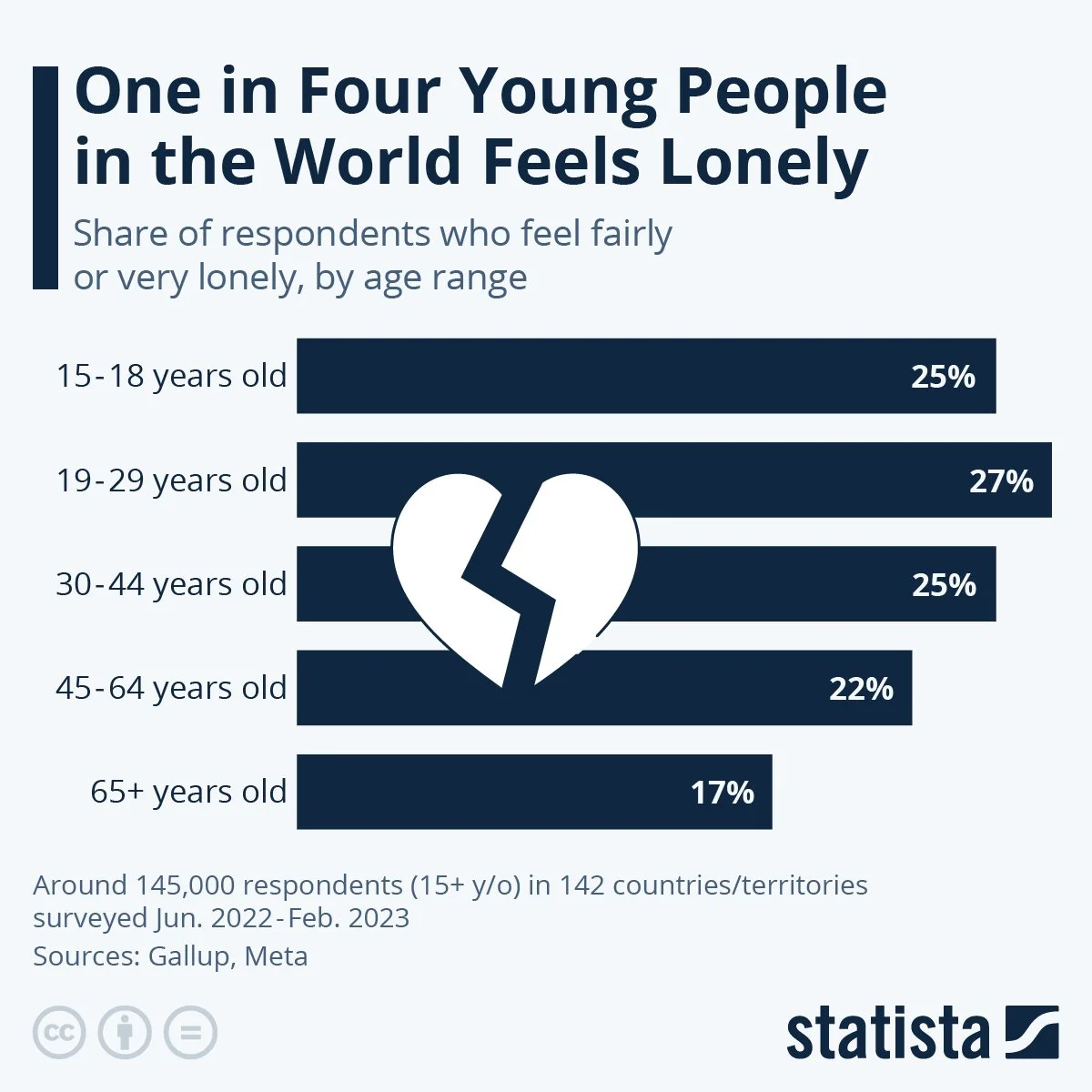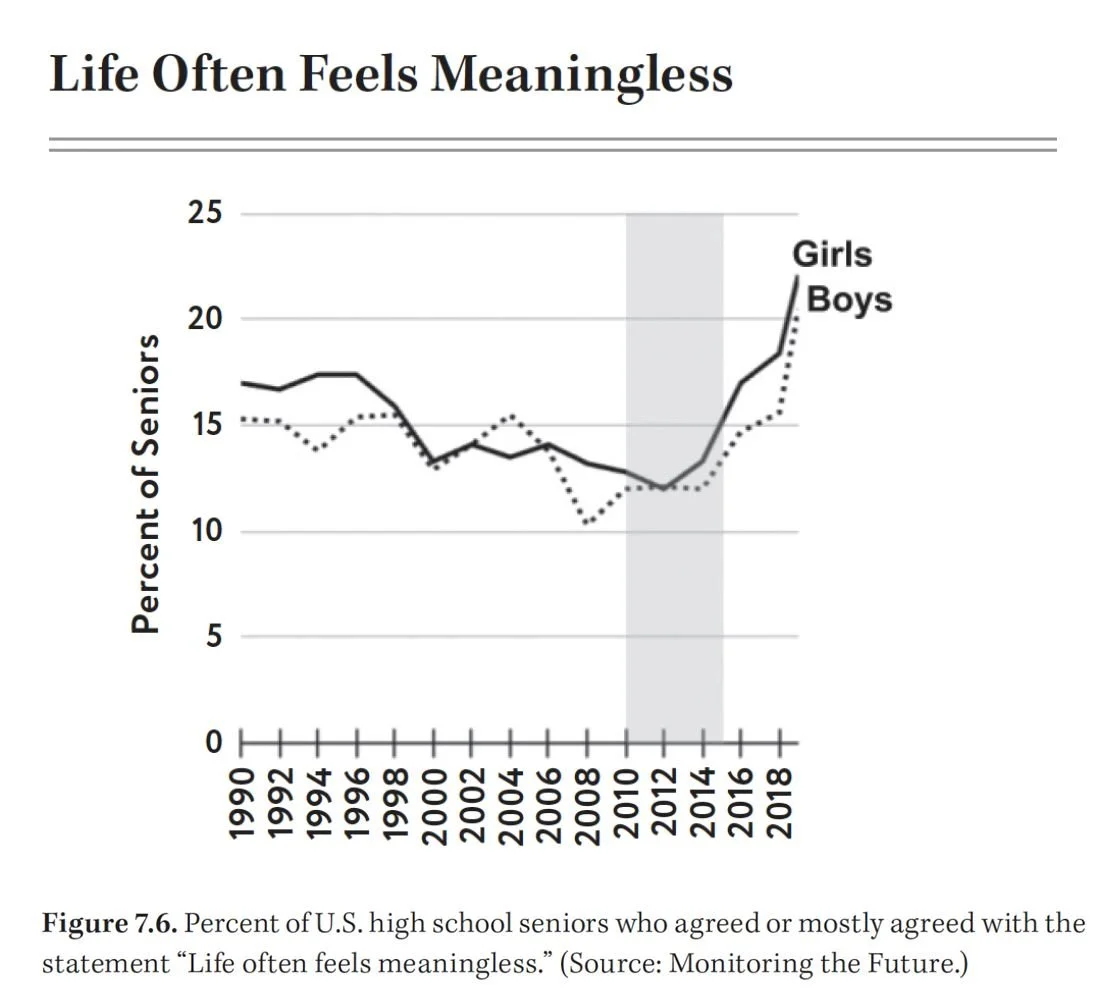We teach science-backed skills so that young adults—and the communities around them—can thrive.
Why this work matters now
Life today is engineered for attention, not fulfillment. Infinite feeds, performance metrics, and busy calendars crowd out friendship, purpose, and reflection. Anxiety and loneliness rise while progress feels strangely hollow.
By the numbers (selected findings):
Young adults report the highest rates of depression and anxiety among any age group; counseling demand is up across campuses.
Heavy social‑media use is linked with higher depression risk; attention is increasingly fragmented by design.
Social isolation carries health risks on par with major lifestyle factors; isolation is rising across age groups.
Employee engagement remains stubbornly low, while “workism” ties identity—and fragility—to career alone.
Our diagnosis: The crisis isn’t a lack of meaning. It’s maladaptive meaning—young people are unconsciously using cultural scripts (status, comparison, consumption) that contradict human biology.
Reorientation turns research into simple, repeatable habits that fit how humans are built.
Foundations
Stabilize energy and attention so change sticks.
Consistent sleep and wake, daily movement, basic nutrition/hydration, phone-free focus blocks, and planned recovery.
The Three Pillars
Connection
Build and keep close, in-person relationships: set “anchor” friendships, schedule weekly check-ins, join communities, and contribute with others.
Purpose
Aim effort at goals that help you and others: link strengths to service, make tiny commitments you’ll keep, and run small experiments that compound.
Meaning
Make sense of life and grow: do a weekly reflection, align values with daily behaviors, and reframe setbacks into next steps.
The Method
Awareness → Alignment → Action. Notice your current orientation, align with evidence‑based principles, and practice small actions that compound into a life that works.
What institutions see: higher belonging and engagement, healthier help‑seeking, and improved persistence. What families and young adults see: more real friends, clearer direction, and daily practices that feel doable.












